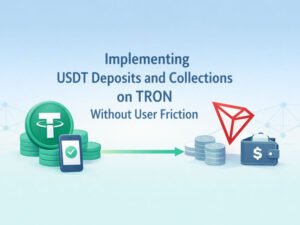Finding the right financing for rental properties can be confusing. Rental loan options vary based on your needs and investment goals. Some loans focus on short-term rentals, while others work better for long-term investments.
Understanding the differences can help you avoid costly mistakes. Knowing what each loan requires and offers makes planning easier. Choosing the best option can save time and money.
Explore these rental loan options to see which fits your situation and start making smart investment decisions today.
Conventional Rental Loans
Conventional rental loans are standard financing options. They usually have set interest rates and fixed repayment terms. Lenders often require a good credit score to qualify. These loans can be used for single or multiple rental units.
Down payments are often higher than for personal home loans. They are a stable choice for investors with steady income and clear financial plans.
Government-Backed Loans
Government-backed loans are designed to support investors with lower risk. These loans may offer lower interest rates and smaller down payments. They are insured by the government, which reduces lender risk.
Qualifying requirements can vary depending on the program. These loans can be a good way to start building rental property portfolios. They are often easier to secure for first-time investors.
Fixed vs Adjustable Rates
Choosing between fixed and adjustable rates affects your long-term payments. Fixed rates stay the same for the life of the loan. Adjustable rates can change based on market conditions.
Fixed rates offer stability and easier budgeting. Adjustable rates may start lower but can rise over time. Investors must consider how long they plan to hold the property before choosing.
Short-Term vs Long-Term Loans
Short-term loans are repaid quickly, usually within five years. Long-term loans can stretch repayment over decades. Short-term loans may have higher monthly payments but lower total interest.
Long-term loans reduce monthly costs but increase overall interest. The choice depends on your cash flow and investment goals. Understanding your financial limits helps decide the right loan type.
DSCR Rental Loan Options
Debt service coverage ratio, or DSCR rental loan options focus on the property’s income. Lenders look at the rental income compared to loan payments. A higher ratio makes it easier to qualify.
DSCR loans are useful for investors relying on rental income. These loans can reduce the need for personal income verification. They help investors manage multiple properties with predictable rental income.
Interest-Only Loans
Interest-only loans let borrowers pay only interest for a set period. This lowers initial monthly payments. The principal remains the same during the interest-only period.
After this period, payments increase to cover the principal. These loans suit investors expecting higher future income. They are useful for properties that will increase in value over time.
Understand the Best Rental Loan Options for You
Understanding rental loan options is key to successful investing. Each type of loan has pros and cons depending on your goals. Assess your financial situation and investment plan before choosing. Consider loan terms, interest rates, and repayment schedules carefully.
Rental income and credit history will affect eligibility. Choosing the right option reduces financial risk and improves returns. Review your options and pick the loan that matches your investment strategy.
For more topics, visit our blog. We do have more!










